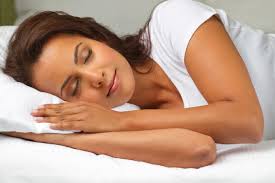 When we read a systematic review with a strong conclusion, we believe the answer is accurate. Reviews do, for the most part, encompass all of the data we have on a given topic. The evidence is even more convincing when there is more than one review that draws a strong conclusion.
When we read a systematic review with a strong conclusion, we believe the answer is accurate. Reviews do, for the most part, encompass all of the data we have on a given topic. The evidence is even more convincing when there is more than one review that draws a strong conclusion.
But sometimes researchers conduct a new kind of study that calls into question an existing body of evidence. That happened last month when a group of researchers published a new study looking at the sleep patterns of indigenous societies.
The body of evidence on sleep suggests that people should regularly sleep seven or more hours a night. Here on EBL, we’ve written about systematic reviews on getting enough sleep. There is evidence that lack of sleep can lead to weight gain, high blood pressure, and work injuries, to name a few.
The new study followed pre-industrial societies in Tanzania, Namibia, and Bolivia to measure how much people without modern amenities, including electricity, sleep each night. Before conducting this study, sleep researchers believed that humans evolved to go to sleep when the sun went down. It is only because of artificial light that we stay up later than we should, the theory goes.
But this study found that the people living in pre-industrial societies do not sleep any more than people living in industrialized societies today. They typically stay up several hours after sunset, using a fire for light and warmth. And they sleep, on average, five to seven hours a night.
The findings showed that the study subjects typically went to sleep as the temperatures began dropping at night, and awoke as the temperature began rising again. The details are covered in a New York Times article published last month.
So what’s the take-home message? A single new study doesn’t negate the body of evidence on sleep, but it can signal that we fully don’t understand a given topic.
“Even when we think we have an evidence base, it will evolve,” said Jane Powers, EBL editor and Director of the ACT for Youth Center of Excellence at the Bronfenbrenner Center for Translational Research. “It is not static. New knowledge will be generated to test the evidence. ”
While this study calls into question how much sleep we actually need, it also raises new questions about the relationship between sleep and temperature, opening the door to new avenues for future research.



Speak Your Mind